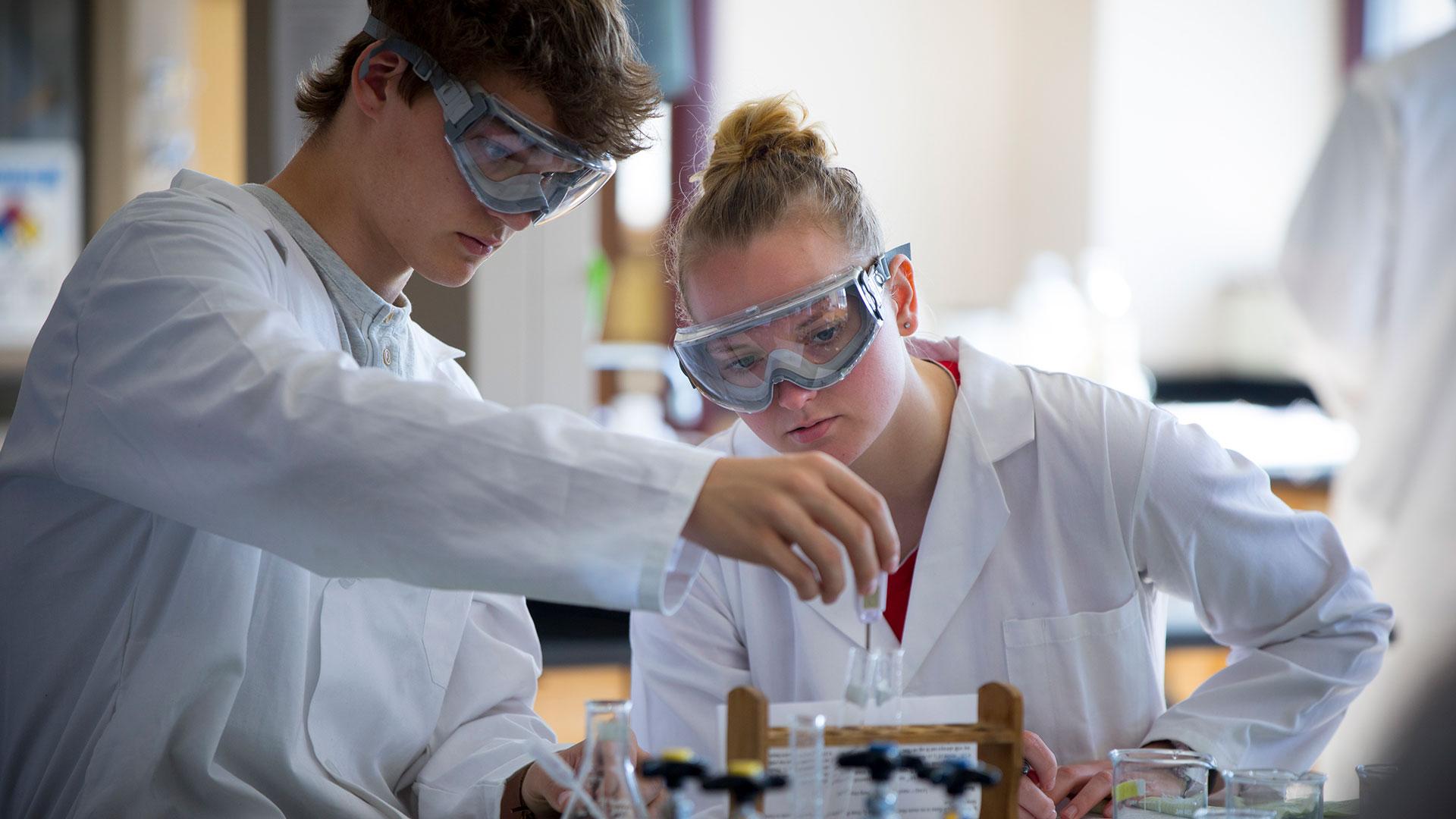Helena, MT — Carroll College is proud to announce that two of its faculty members have been awarded competitive infrastructure grants from the Montana IDeA Network of Biomedical Research Excellence (MT INBRE), significantly enhancing the college’s capacity for biomedical research and education.
Dr. Calvin Goemann, Assistant Professor of Microbiology in the Department of Biological and Environmental Sciences, has received a $36,890 grant to acquire a GridION Nanopore genome sequencer and high-speed centrifuge. This state-of-the-art technology will dramatically increase the college’s genomic sequencing capacity and computational power, reducing the cost of sequencing runs from $1,000 to just $90 and enabling real-time data analysis. This investment will support both research and teaching, giving Carroll students hands-on experience with genome sequencing—an increasingly vital tool in medicine, biotechnology, and public health. Genome sequencing has allowed scientists and doctors to better understand fundamental biological processes, reclassify phylogenetics, discover new viruses, and direct individualized treatments for specific diseases.
“Carroll’s strong track record in preparing students for medical and graduate research programs is built on active, experiential learning,” said Dr. Goemann. “This instrument will allow us to expand our summer research initiatives and integrate advanced sequencing into the biology curriculum more broadly—giving every biology student hands-on experience in sequencing genetic material.”
The grant complements $40,000 in existing National Science Foundation funding from collaborator Dr. Ashley Beck, enabling the full purchase of the $67,000 instrument and accompanying materials.
Additionally, Dr. John Rowley, Associate Professor of Chemistry, has been awarded a $45,812 grant to purchase a combined UV-Vis-NIR and fluorescence spectrophotometer. This high-quality spectrometer will allow students and faculty to measure the absorption and emission of light in biological and chemical samples, supporting research in areas ranging from drug delivery and biomolecule quantification to solar energy materials. The instrument replaces aging equipment and will be central to both course-based undergraduate research experiences (CUREs) and faculty-mentored summer research (SUREs).
“This spectrophotometer will provide publication-quality data, support dozens of student research projects each year, and further enhance the quality of learning across our chemistry, biochemistry, and molecular biology programs,” said Dr. Rowley.
Between Spring and Fall 2024, more than 75 Carroll students have utilized spectroscopic techniques in research and coursework—a number expected to grow with the arrival of this new instrumentation.
These grants reflect the mission of Montana INBRE, a collaborative network of Ph.D.-granting institutions, baccalaureate schools, and tribal colleges committed to strengthening the state’s biomedical research infrastructure and workforce pipeline. The network’s aim is to improve the health and well-being of all Montanans by investing in innovative science and education.
“These awards are a testament to the talent and dedication of our faculty, as well as Carroll College’s commitment to providing undergraduates with transformative research experiences,” said Dr. John Cech, President of Carroll College. “We’re grateful to MT INBRE for supporting this important work.”
###

